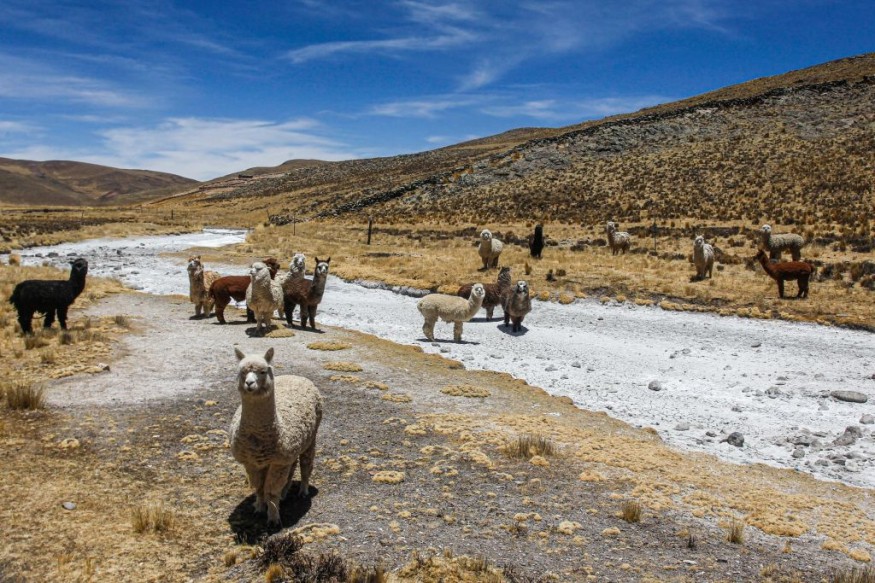
For the first time, highly pathogenic avian influenza, known as bird flu, has been identified in alpacas, according to the National Veterinary Services Laboratories of the US Department of Agriculture.
The alpacas was founcd to have tested positive on May 16 and they were detected at an Idaho farm.
Infection Of Alpacas
The previous infection at the farm is one of the reasons why this detection is not unusual, according to the agency. Nonetheless, alpacas-members of the camel family that are native to the Andes and cultivated mostly for their fleece-are the first animals in which the virus has been discovered.
Dairy cows are considered as among the over 50 animal species in the US where the H5N1 strain has been found in the recent weeks.
The viruses recovered from the alpacas had a gene sequence that indicates a close relationship to the H5N1 viruses that are now plaguing dairy cattle, according to experts.
The Alpaca Owners Association has already reported that there are over 264,000 registered alpacas in the United States.
For almost twenty years, scientists have been closely monitoring the H5N1 virus and it was found that it has mostly impacted birds throughout that time. But over the last two years, the virus has been affecting a greater range of wild and domesticated species, which has sparked worries that it may be getting closer to becoming a disease that people may contract from one another.
Read Also : Bird Flu Outbreak in Seals Causes Urgent Mitigation Efforts to Slow Down the Virus Spread
Human Transmission
It was discovered that two agricultural workers had avian flu, albeit with very mild symptoms.
Over the years, there have been rare reports of human cases all over the world, including three in the US; however, there has been no information about person-to-person transmission in the ongoing US cow outbreak.
The US Centers for Disease Control and Prevention stated this week that while it still believes there is little risk to the general public, it does anticipate an increase in cases.
Even though human cases of avian flu are still uncommon, experts are concerned about the increasing number of mammals contracting the disease.
Although there is currently no proof of human-to-human transmission, health experts are concerned that if the virus were to proliferate significantly in the future, it might mutate into a form that could be transmitted between people.
Following the discovery of a bird flu case at a big egg farm, the state of Iowa declared that more than 4 million chickens would have to be killed.
Following the detection of the disease at a farm in Sioux County, Iowa, crews are currently slaughtering around 4.2 million chickens.
Almost 1.4 million chickens were also killed when the virus was identified at an egg farm west of Minneapolis, Minnesota, last week.
According to the US Department of Agriculture, since the outbreak started in 2022, a total of 92.34 million birds have been killed.
Related Article: US Bird Flu Alert: Epidemiologists Warn US is 'Unprepared' for Potential Widespread Outbreak
© 2025 NatureWorldNews.com All rights reserved. Do not reproduce without permission.





